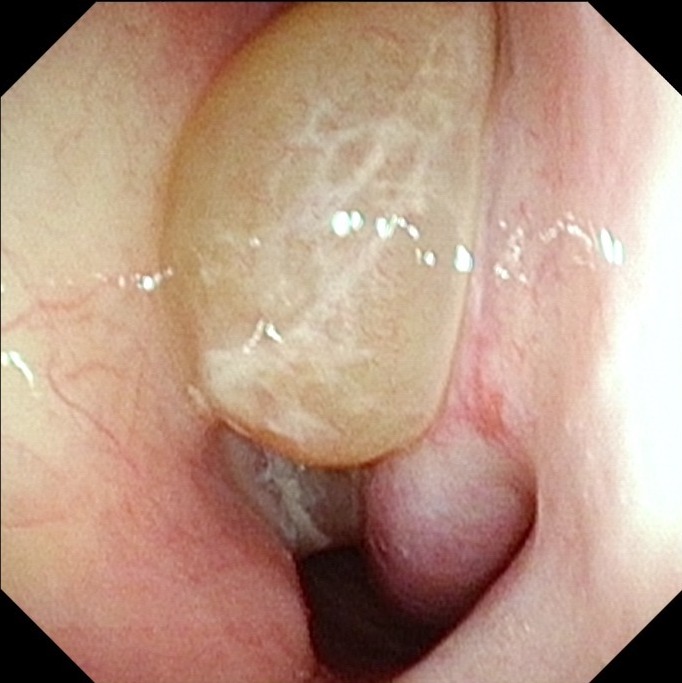Nasal Polyps and the Advent of Biologics: Questions and Answers

What is Chronic Rhinosinusitis and what are polyps? How are the two related?
Chronic rhinosinusitis means inflammation of the nasal and sinus lining that has persisted for more than 12 weeks. The common symptoms are nasal congestion, a runny nose, pain or pressure over the cheeks and forehead, and a loss or diminution of smell. The term rhinosinusitis is a combination of the word rhinitis (inflammation of the nasal lining) and sinusitis (inflammation of the lining of the sinus). The prefix “chronic” which is often misinterpreted to mean severe is actually a reference to the persistence of the condition. In this case 12 weeks or more.
The term “sinus” refers to the anatomical air-filled bony spaces that surround the nose. This term is colloquially used to mean a blocked, runny nose with sneezing that is worst in the morning.
In some cases of chronic rhinosinusitis, nasal polyps may develop. Nasal polyps occur as a consequence of severe swelling of the lining of the nose. They are non-cancerous growths and do not become cancers. We now recognise that chronic rhinosinusitis has two forms – one in which there are no polyps, and the other with polyps
What are the common symptoms of nasal polyps and why should one be concerned if they have nasal polyps?
Nasal polyps cause nasal congestion or stuffiness, a loss of smell and taste, a runny nose, and pressure over your cheeks and forehead. Patients often mouth breathe and have disturbed sleep. Poor sleep, nasal blockage, and the inability to smell or taste food can seriously hamper one’s quality of life.
Why is smell important? What is dangerous about not being able to smell
The sense of smell is important is detecting dangers such as smoke from a fire, gas which may ignite, and food that is rotten. People who cannot smell are at risk of not sensing these dangers
Who is most at risk of developing nasal polyps? How common is it to see nasal polyps among people with chronic rhinosinusitis
People with allergies, asthma, and eczema have an increased risk of developing polyps. In particular, allergies to fungi (allergic fungal sinusitis) may produce extensive nasal polyps. Patients who are allergic or sensitive to a class of drugs called non-steroidal anti-inflammatory drugs (or NSAIDs) also have a higher predisposition to develop polyps. Aspirin and Ibuprofen are common NSAIDs. The association of aspirin sensitivity, asthma, and nasal polyps has been long recognised and is described as Samter’s triad.
About 20-30% of patients with chronic rhinosinusitis have nasal polyps.
How do nasal polyps make chronic rhinosinusitis worse? Or vice versa?
Nasal polyps block the sinus drainage pathways and worsen chronic rhinosinusitis. The presence of polyps in patients which chronic rhinosinusitis also worsens the symptoms of nasal congestion and loss of smell
What are some common misconceptions about nasal polyps? Do people usually miss the symptoms, or dismiss them and not seek treatment?
One common misconception about nasal polyps is that they can become cancerous like polyps in the bowel. This is not true and neither are they related to polyps elsewhere in the body. Many people with nasal polyps have long-standing congestion and often think it is due to allergies or what is colloquially known as “morning sinus”. General Practitioners are ill-equipped to diagnose polyps as nasal endoscopy is necessary.
What treatments are available for chronic rhinosinusitis with nasal polyps? What happens if nasal polyps are not treated?
The mainstay of treatment of chronic rhinosinusitis is the use of nasal steroid sprays. These are effective in reducing the size and number of polyps. When symptoms are severe despite the use of nasal sprays, patients benefit from a course of oral steroids. Antihistamines (such as chlorpheniramine and loratadine) have little effect on nasal polyps.
Sinus surgery is reserved for the more severe and recalcitrant cases. The main goal of surgery is to remove the polyps and open up obstructed sinuses and allow access to nasal steroids.
Patients who undergo surgery need to accept that recurrence of polyps may occur if maintenance treatment with nasal steroid sprays is ceased. Up to 20% of cases will require revision surgery after 5-7 years.
Untreated nasal polyps will continue to grow and cause severe symptoms of congestion, runny nose and loss of smell. The larger the volume of polyps, the poorer the response to non-surgical.
Please briefly explain what biologics are. Who should consider this option, and why?
Biologics refers to a wide range of products which includes antibodies, blood products, and vaccines that are synthesized using biotechnology. For nasal polyps, there are now several artificially engineered antibodies that target inflammatory chemicals (or interleukins) that are involved in the genesis of nasal polyps. Biologics should be considered for recalcitrant nasal polyps that do not respond to surgery, oral steroids, and nasal steroid sprays
What kind of improvement have you seen in patients who have opted for biologics versus other treatments? How did their quality of life improve?
Biologics for nasal polyps have been a real game changer. In carefully selected patients, nasal polyps disappear within the first few months of treatment. Patients report a dramatic improvement in nasal stuffiness, sense of smell, and nasal discharge. They sleep better and are able to enjoy their food
Does the treatment lead to a permanent improvement in the symptoms?
There is a paucity of long-term data on whether biologics permanently reduce the rate of nasal polyp recurrence once treatment is ceased. Most polyp patients will need some maintenance treatment with saline irrigation of the sinuses and nasal steroid sprays. In patients who have sensitivity to NSAIDs, the avoidance of these drugs and reducing foods that contain salicylic acid (aspirin) may help.
[End]
Share this blog via:







